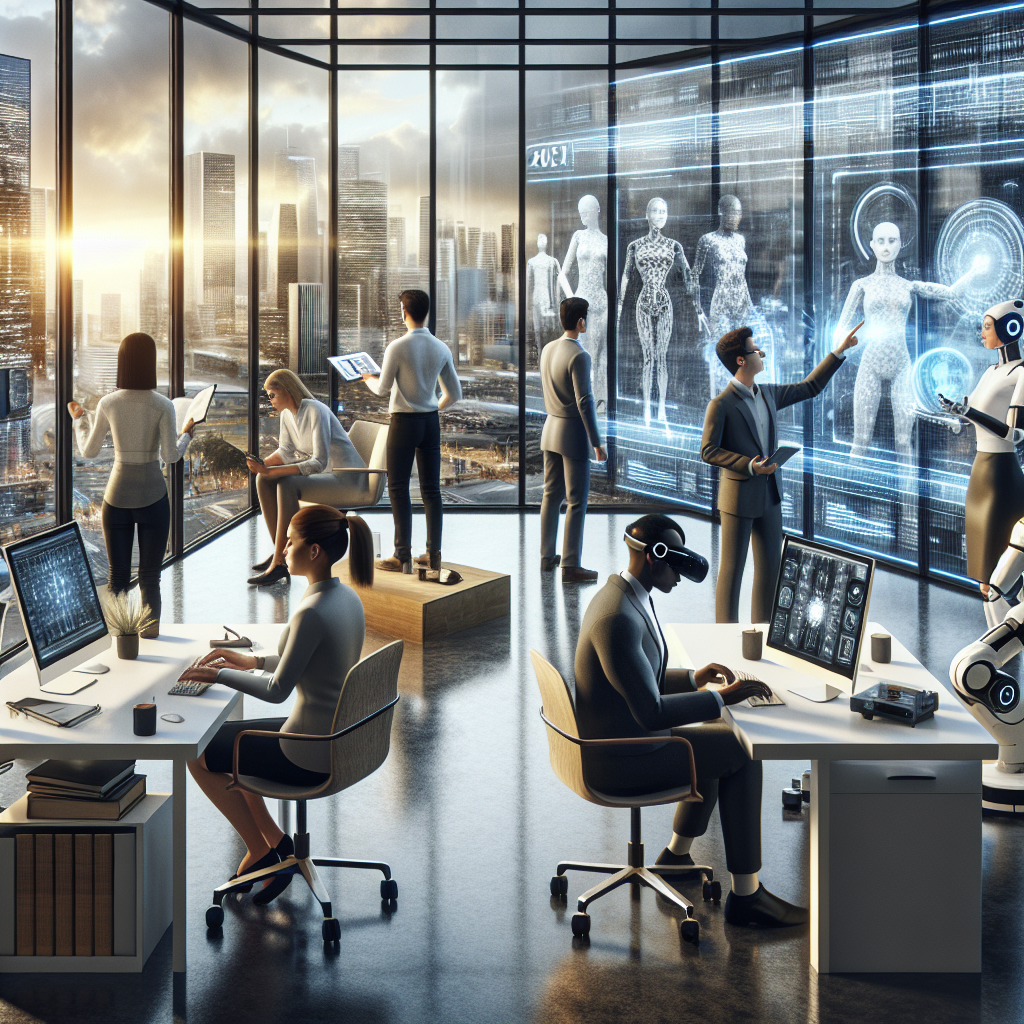Introduction
Artificial Intelligence (AI) transforming jobs is no longer just a futuristic concept or marketing buzzword. In 2025, the impact of AI on the workforce is tangible, profound, and rapidly evolving. This transformation goes beyond simple automation; it is reshaping how professionals across industries work, collaborate, and create value. From enhancing productivity and enabling new skill sets to fostering entirely new job categories, AI transforming jobs is driving a significant paradigm shift in the labor market. In this article, we will explore the real ways AI is changing the workforce, debunk common myths, and provide actionable insights for employees and employers navigating these dynamic changes.
Understanding the Landscape: AI Transforming Jobs in 2025
The narrative around AI transforming jobs often dwells on job displacement or futuristic dystopias. However, the reality in 2025 is far more nuanced. AI is augmenting human capabilities rather than replacing them entirely. For example, AI-powered tools are now commonplace in fields such as healthcare, finance, marketing, manufacturing, and customer service, automating repetitive tasks and allowing professionals to focus on higher-value, creative, and strategic work.
At the core of AI transforming jobs is the synergy between human expertise and machine efficiency. AI systems excel at processing vast amounts of data, detecting patterns, and making predictions, while humans bring judgment, empathy, and complex problem-solving skills. By combining these strengths, organizations achieve higher productivity, innovation, and competitiveness.
Key Areas Where AI is Transforming Jobs
1. AI Transforming Jobs in Healthcare
Healthcare is one of the most prominent fields witnessing AI transformation. AI algorithms assist doctors with diagnostic imaging, predict patient outcomes, and personalize treatment plans. AI-powered robotic surgeries are more precise, and administrative AI reduces paperwork, freeing clinicians to spend more time with patients. Consequently, jobs for radiologists, nurses, and healthcare administrators are evolving to integrate AI tools as collaborators rather than competitors.
2. AI Transforming Jobs in Manufacturing and Industry
In manufacturing, AI-driven automation streamlines production lines, performs quality control, and optimizes supply chains. However, rather than eliminating jobs, AI transforming jobs means the creation of new roles like AI maintenance technicians, data analysts, and robot coordinators. Workers are increasingly required to manage and fine-tune AI-enabled machinery, demanding new technical skills and continuous learning.
3. AI Transforming Jobs in Finance and Banking
AI has revolutionized finance by automating risk assessments, fraud detection, and trading decisions. Financial advisors now leverage AI analytics to offer personalized investment advice. As AI transforming jobs continues, professionals in banking must adapt to hybrid roles that blend human judgment with automated recommendations, emphasizing ethical decision-making and customer trust.
4. AI Transforming Jobs in Marketing and Customer Service
Marketing professionals utilize AI for customer segmentation, predictive analytics, and content personalization. Chatbots and virtual assistants handle routine queries, enhancing customer experience while allowing human agents to focus on complex problem-solving and relationship building. This shift highlights how AI transforming jobs creates more strategic and creative opportunities in client-facing roles.
Adapting to the AI Transformation: Skills and Strategies
To thrive amid AI transforming jobs, workers must embrace adaptability and lifelong learning. Technical skills such as data literacy, AI tool management, and digital fluency are becoming foundational. Soft skills, including critical thinking, emotional intelligence, and collaboration, are increasingly valuable as humans take on roles requiring judgment and interpersonal interaction.
Employers play a critical role by investing in workforce reskilling and creating environments where AI-human collaboration is seamless. Upskilling programs, cross-functional teams, and digital literacy initiatives help employees remain relevant and productive in an AI-augmented economy.
Myth Busting AI Transforming Jobs
Many fears around AI transforming jobs focus on job losses and mass unemployment. While automation may displace certain repetitive roles, history and current trends reveal that AI also generates new job categories and opportunities. The key is the transition period—stakeholders must invest in education, policy frameworks, and social protections to support workers through changes.
Another misconception is that AI will replace all human work. In reality, AI excels in narrow tasks but lacks the creativity, empathy, and nuanced decision-making of human workers. Industries requiring complex interpersonal skills, strategic thinking, and innovation will continue to rely heavily on humans.
Actionable Steps for Individuals and Organizations
Individuals:
– Develop digital literacy by learning AI basics and relevant software platforms.
– Enhance soft skills such as communication, adaptability, and problem-solving.
– Engage in continuous education and certifications related to AI and emerging technologies.
– Network within your industry to stay informed about AI trends and opportunities.
Organizations:
– Invest in AI training programs for employees at all levels.
– Foster a culture that encourages experimentation and human-AI collaboration.
– Redesign workflows to integrate AI technologies effectively.
– Monitor ethical implications of AI in the workplace to maintain trust.
Conclusion
AI transforming jobs in 2025 represents an unprecedented shift in the employment landscape. Rather than a threat, it is an opportunity for growth, innovation, and redefining human work. By understanding the real impact of AI and proactively adapting through skill development and strategic organizational change, both individuals and companies can benefit from this transformation. The future of work is not AI versus humans—it is AI with humans, working together to build smarter, more efficient, and more meaningful careers.
URL Slug: ai-transforming-jobs-in-2025-beyond-buzzwords-how-ai-is-really-transforming-jobs

Leave a Reply